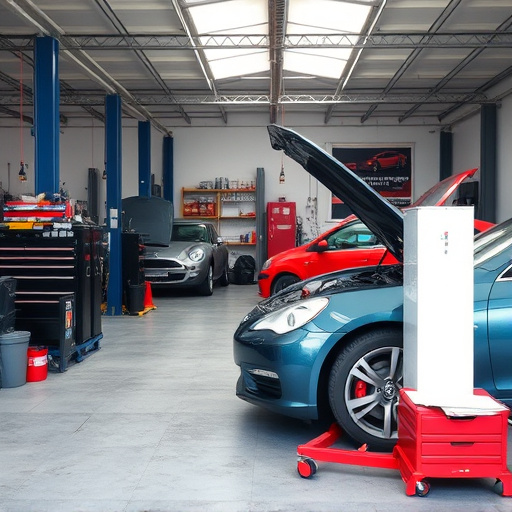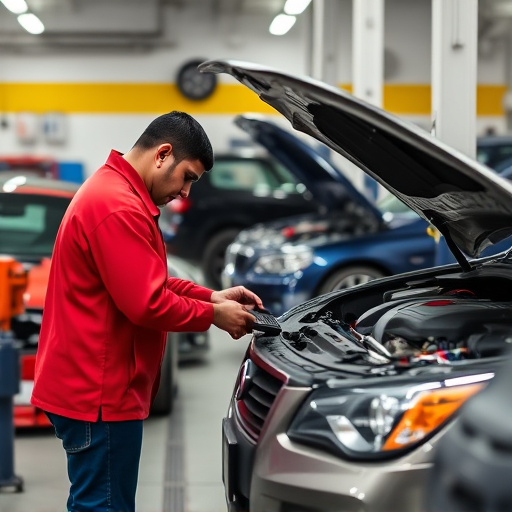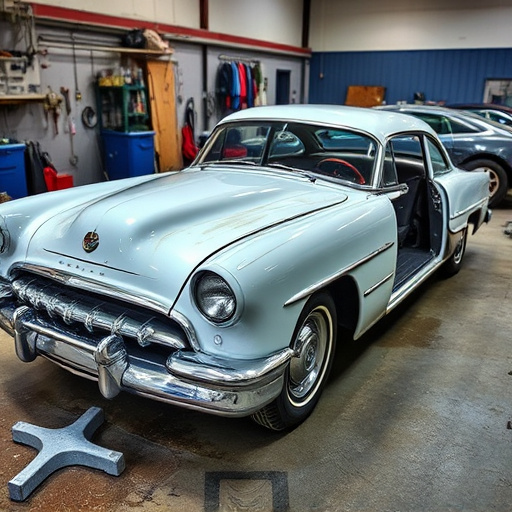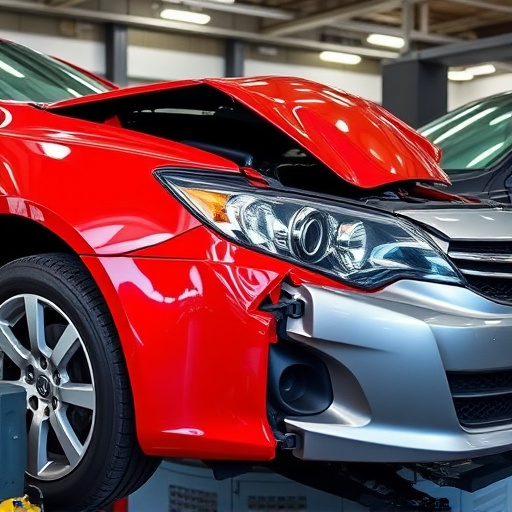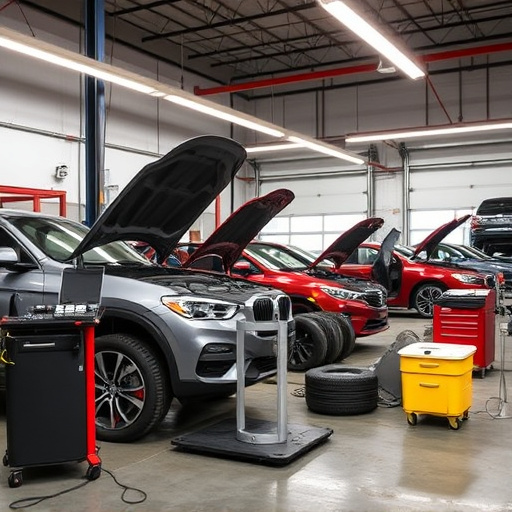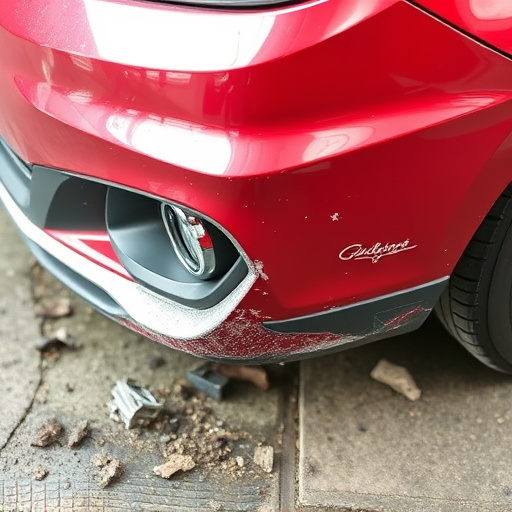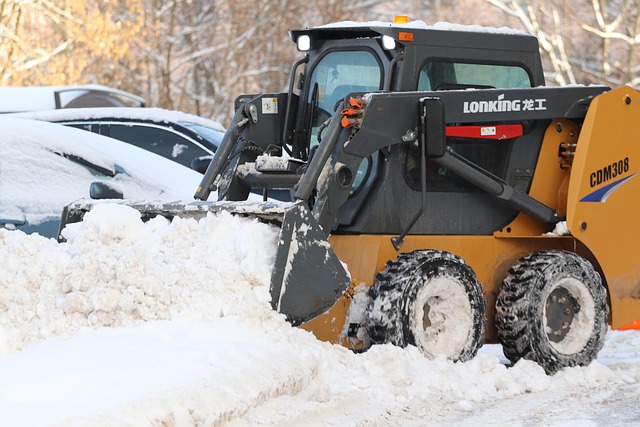Regular inspections and preventive maintenance are vital for heavy-duty trucks to prevent collisions. By checking engines, brakes, tires, lights, fluids, transmission, and steering systems, fleet managers can identify early issues, enhance safety, performance, and vehicle lifespan, minimize costly repairs or accidents, and ensure structural integrity through bodywork repairs, ultimately reducing risks on the road.
In the world of heavy-duty trucking, preventing collisions is paramount. Regular inspections and preventive maintenance aren’t just recommended—they’re essential safeguards against catastrophic accidents. By proactively addressing potential issues, fleet managers can significantly reduce risks on the road. This article explores these critical components, from routine checks to optimized performance, providing insights into how thorough maintenance practices safeguard drivers and vehicles alike, ultimately minimizing the risk of heavy-duty truck collisions.
- Regular Inspections: Key to Avoiding Disastrous Collisions
- Preventive Maintenance: Reducing Risks on the Road
- Optimized Performance: Safeguarding Drivers and Vehicles
Regular Inspections: Key to Avoiding Disastrous Collisions

Regular inspections are an indispensable practice in the world of heavy-duty trucking, acting as a powerful shield against potential disasters on the road. These thorough checks ensure that every component of the vehicle is functioning optimally, from the engine to the brakes and tires. By identifying even the smallest of issues early on, fleet managers can prevent what could turn into costly repairs or, worse, a heavy-duty truck collision.
A well-maintained truck boasts improved safety features, enhanced performance, and extended operational lifespan. Regular inspections encompass examining the vehicle’s bodywork, ensuring no signs of corrosion or damage that could compromise structural integrity. In light of these considerations, fleet repair services play a pivotal role in promoting road safety, minimizing downtime, and safeguarding both drivers and other vehicles on the highway.
Preventive Maintenance: Reducing Risks on the Road

Preventive maintenance plays a pivotal role in minimizing the likelihood of heavy-duty truck collisions on our highways. By scheduling regular check-ups and services, fleet managers can identify potential issues before they escalate into safety hazards. This proactive approach focuses on parts such as brakes, tires, lights, and fluids, ensuring optimal performance and reliable operation. Regular vehicle inspections also encompass crucial components like the engine, transmission, and steering systems, all of which are essential for maintaining control and stability on the road.
Furthermore, preventive maintenance extends to aesthetics and structural integrity through tasks like vehicle paint repair and auto body repairs. Keeping exterior surfaces in good condition enhances visibility and reduces glare, contributing to safer driving conditions. Regularly addressing these aspects not only extends the life of the vehicle but also ensures that heavy-duty trucks are in top form, ultimately reducing the risk of accidents and fostering a culture of safety on our roads.
Optimized Performance: Safeguarding Drivers and Vehicles

Optimized Performance: Safeguarding Drivers and Vehicles
Regular maintenance plays a pivotal role in ensuring the optimal performance of heavy-duty trucks, significantly reducing the risk of collisions on the road. By conducting routine checks, mechanics can identify potential issues before they escalate. This proactive approach includes inspecting critical components such as brakes, tires, lights, and steering systems. Well-maintained vehicles respond more accurately to driver inputs, allowing for quicker reaction times and enhanced control, which are vital in avoiding accidents.
Moreover, regular maintenance also involves meticulous vehicle body repair and vehicle paint repair where necessary. An automotive body shop that specializes in heavy-duty truck collision repair can restore damaged parts to their original condition, ensuring the structural integrity of the vehicle. This not only improves safety but also maintains the overall performance and resale value of the truck. With proper upkeep, drivers can have peace of mind knowing that their vehicles are reliable and capable of navigating various road conditions with minimal risk of heavy-duty truck collision.
Maintaining heavy-duty trucks is not just a recommendation; it’s a critical safety measure. By prioritizing regular inspections, preventive maintenance, and optimized performance, fleet operators can significantly reduce the risk of costly and dangerous collisions. These proactive steps ensure that vehicles are in top condition, enhancing driver safety and roadworthiness, ultimately contributing to a safer transportation network.


